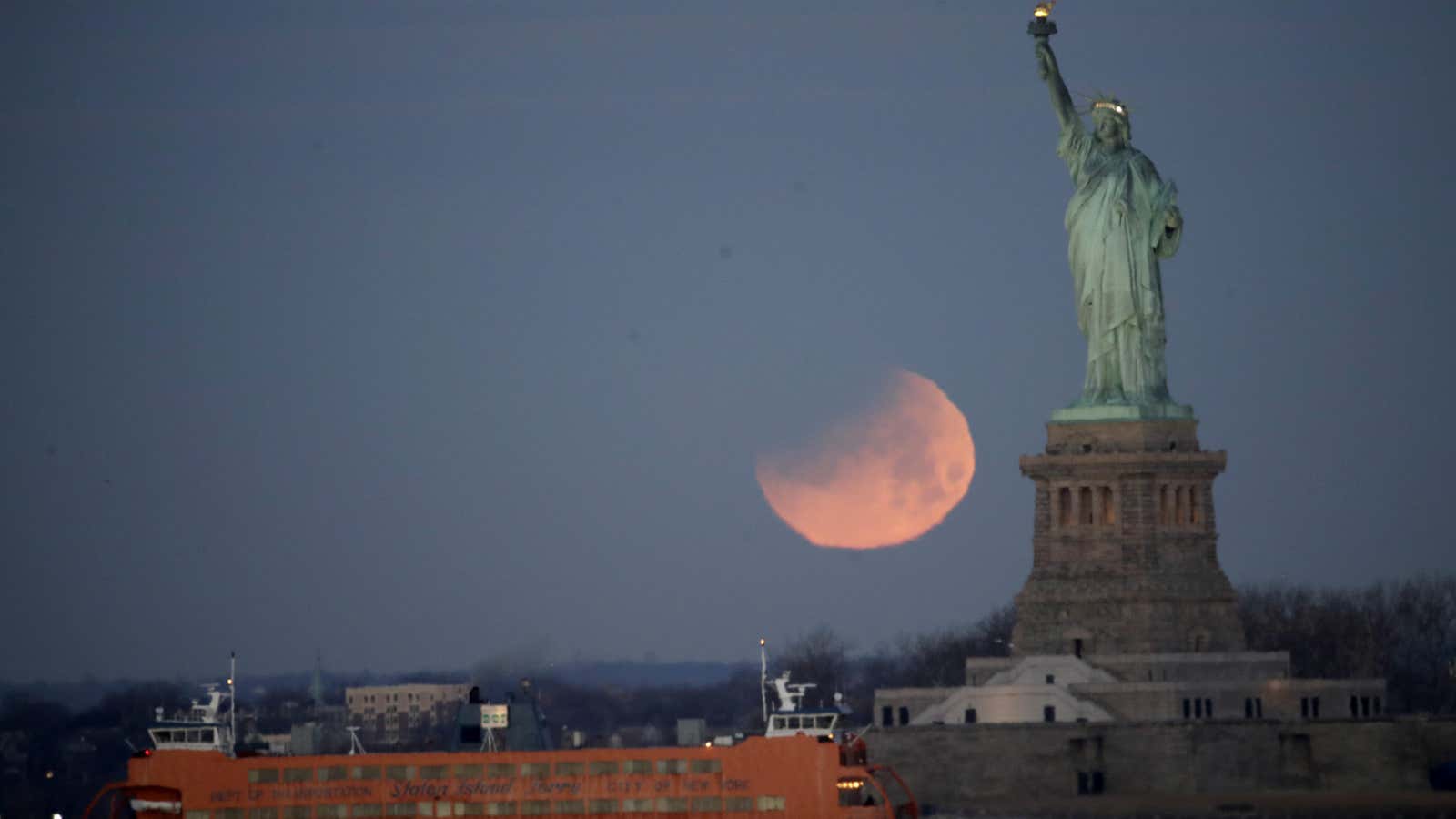US senator Sheldon Whitehouse didn’t hold back when talking about America’s role as laundering the world’s dirty money on Tuesday, Feb 6. “Our European partners are doing their part to combat crime facilitated by shell corporations. If we don’t soon follow suit, I fear we will risk losing our place as that city on a hill and beacon of justice,” he said at a Senate Judiciary Committee hearing.
Last week, the US was ranked the world’s second worst jurisdiction for lack of financial transparency by the Tax Justice Network (TJN). The only more secretive country is Switzerland, according to the anti-corruption organization’s 2018 Financial Secrecy Index.
The US provides an increasingly large portion of the world’s offshore financial services, especially in states like Delaware, Nevada, and Wyoming. As Quartz has previously written, one 2012 academic study found it was easier to form a shell company(pdf) in the US than in Panama.
Despite years of documentation of US shell companies being used for illegal activity, the US has failed to change its ways. In fact, the country jumped up a spot from third place when the TJN last did the study in 2015, with the US share of the offshore market growing from 19.6% to 22.3%. The index is calculated on a mixture of each jurisdiction’s secrecy and market share.
The US government “refuses to take part in international initiatives to share tax information with other countries, and has failed to end anonymous companies and trusts aggressively marketed by some US states,” the report says. “There is now real concern about the damage this promotion of illicit financial flows is doing to the global economy.”
Although Europe is home to three of the world’s top ten most secretive jurisdictions (plus Guernsey, a British Crown Dependency), the continent has made serious efforts to improve transparency. TJN chief executive Alex Cobham highlights the fact that a number of European countries have created registries of the ultimate owners of companies. Those registries aren’t yet public, but after last year’s Paradise Papers revelations, the EU as a whole agreed to set up a fully public register by 2020. In an email, Cobham described this as ”a major breakthrough.”
The UK has fallen down to 23rd in the list from 15th in 2015, by implementing strong domestic measures like a public register of beneficial owners. It nevertheless has a massive share (17.4%) of the offshore banking market; if combined with territories like the Cayman Islands and British Virgin Islands, plus Crown Dependencies like Guernsey and Jersey, it would rank first in the index.
The total amount hidden in offshore bank accounts has been variously estimated at $21 trillion to $32 trillion or 10% of the world’s wealth. The Financial Secrecy Index’s overall aim is to show “just how far the world is from a transparent financial and tax system, allowing citizens to hold powerful economic and political actors to account, and ensuring fair market competition,” writes Cobham.
These are the 25 worst offenders this year (read the full list here):
